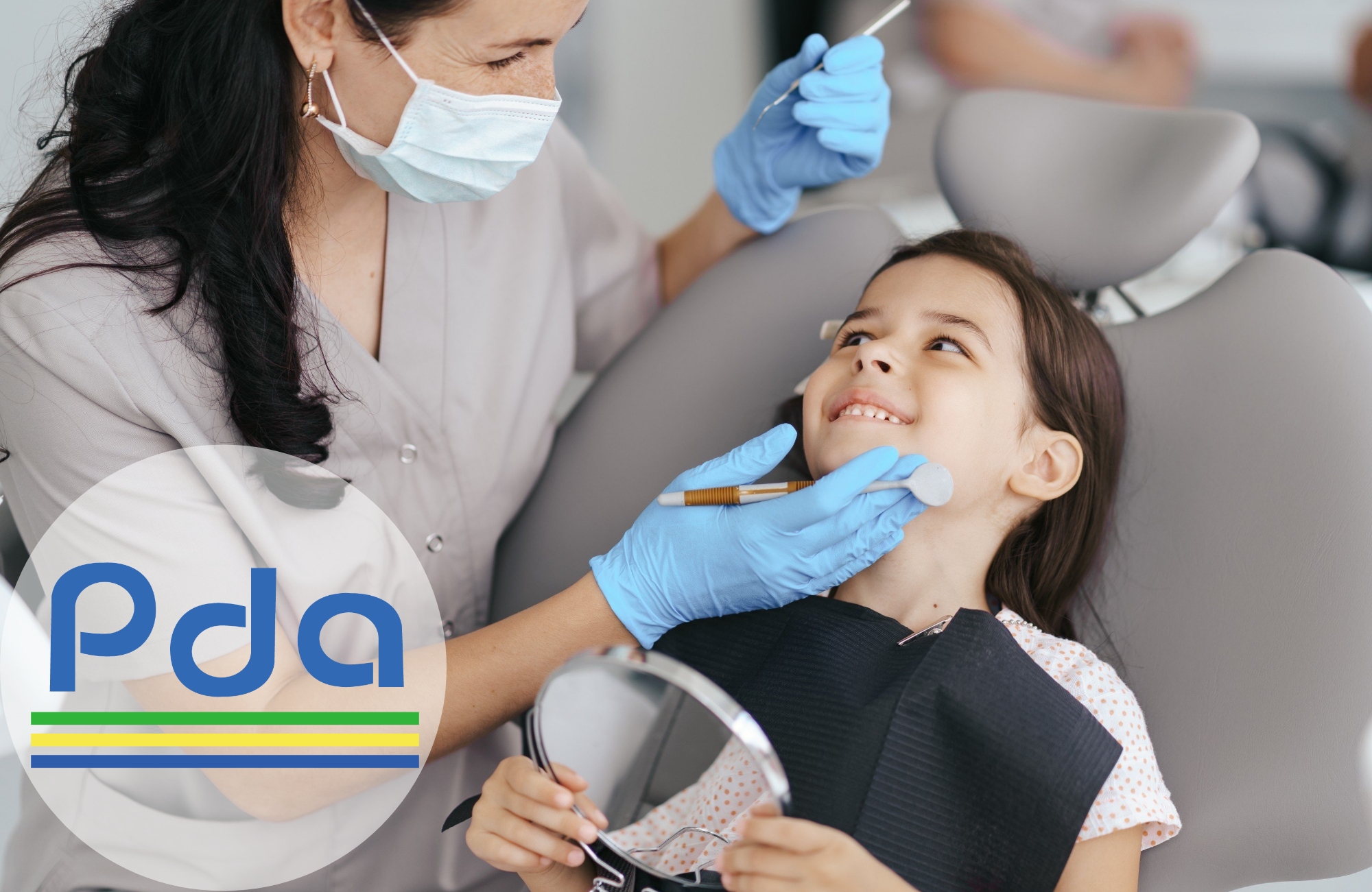Understanding Premature Ejaculation and Its Impact on Men’s Health
Premature ejaculation (PE) is one of the most prevalent male sexual health concerns, affecting a significant proportion of men across all age groups. This common condition can have far-reaching effects beyond the bedroom, influencing a man’s overall well-being, confidence, and quality of life. For older men, particularly those in metropolitan areas such as New York City, PE can present not only as a physical condition but also as a source of emotional distress and relationship difficulties. The fast-paced, high-pressure lifestyle often associated with urban environments may contribute to heightened anxiety levels, which in turn can exacerbate the symptoms of premature ejaculation.
Studies suggest that premature ejaculation may affect up to 30% of men at some point in their lives, with prevalence rates varying depending on age, health status, and psychological factors. Younger men may experience premature ejaculation due to inexperience or performance anxiety, while older men might find that medical conditions such as diabetes, hypertension, or prostate health issues play a role in the onset or persistence of PE. Additionally, stress, depression, and relationship challenges can all be contributing factors, creating a cycle where premature ejaculation feeds into emotional strain and vice versa.
The condition is generally defined as ejaculation that occurs sooner than desired, either before or shortly after penetration, causing distress or interpersonal difficulty. This definition, supported by health authorities such as the National Institute of Diabetes and Digestive and Kidney Diseases (NIDDK), underscores the complexity of PE as a medical and psychological issue. Unlike other sexual health conditions that may have a more straightforward physiological cause, premature ejaculation often results from a combination of physical, emotional, and situational factors. This multidimensional nature highlights the importance of a comprehensive approach to diagnosis and treatment — one that considers not only biological aspects but also mental health, relationship dynamics, and lifestyle.
Moreover, the impact of premature ejaculation on men’s health extends beyond individual distress. Studies have shown that PE can significantly affect intimate partnerships, leading to decreased satisfaction for both partners, communication breakdowns, and sometimes even avoidance of sexual activity altogether. Left unaddressed, this can contribute to broader mental health concerns, including low self-esteem, chronic anxiety, and depressive symptoms. Given these potential outcomes, it is crucial for men experiencing premature ejaculation to seek professional guidance and explore evidence-based interventions that can improve both sexual function and overall quality of life.
The Importance of Specialized Medical Care
When to Seek Help from a Urologist
Men experiencing persistent premature ejaculation often benefit from consultation with a specialist, such as a urology doctor NYC who has experience managing male sexual health disorders. These medical professionals can assess underlying causes, including hormonal imbalances, nerve damage, or prostate conditions, which may contribute to or exacerbate PE. While some cases of premature ejaculation may improve with lifestyle changes or counseling, ongoing or severe symptoms typically require medical evaluation to rule out other health concerns and to develop a personalized treatment plan.
Patients searching for a urologist Manhattan often prioritize finding a provider who combines discretion, experience, and access to advanced diagnostic tools. This ensures that sensitive health concerns are addressed in a respectful and confidential setting, while also benefiting from cutting-edge technologies that can identify subtle or complex contributing factors. A urologist Manhattan can provide comprehensive assessments that may include hormone testing, neurological exams, and imaging studies to evaluate the prostate and surrounding structures.
A urology doctor NYC plays a crucial role in offering targeted therapies tailored to each patient’s unique circumstances. This might include prescribing medications such as selective serotonin reuptake inhibitors (SSRIs) or topical anesthetics, recommending pelvic floor physical therapy, or coordinating care with mental health professionals to address psychological components of premature ejaculation. Additionally, they can identify and manage coexisting conditions like chronic prostatitis, erectile dysfunction, or other urological disorders that may influence sexual performance and satisfaction.
Recognizing when to seek specialized help is an essential step in regaining confidence and improving intimate relationships. Men who find that premature ejaculation is causing emotional distress, relationship difficulties, or diminished quality of life should not hesitate to consult a urology doctor NYC for expert guidance. Early intervention can prevent further complications and open the door to effective, evidence-based solutions.

The Role of Multidisciplinary Teams
Comprehensive management of PE may involve collaboration between urologists, endocrinologists, psychologists, and primary care physicians. This multidisciplinary approach ensures that both physiological and emotional aspects of premature ejaculation are addressed, enhancing the likelihood of successful, long-term outcomes. By integrating the expertise of various specialists, patients benefit from a holistic plan that targets not just the symptom but the underlying causes and contributing factors.
For instance, urologists play a central role in diagnosing and managing the physical causes of PE, such as nerve sensitivity, prostate conditions, or anatomical abnormalities. Endocrinologists may assess for hormonal imbalances, including low testosterone or thyroid disorders, which can influence sexual function and performance. Psychologists or licensed therapists contribute by addressing mental health components like performance anxiety, depression, or relationship stress that can exacerbate premature ejaculation. Meanwhile, primary care physicians help coordinate care and monitor overall health, ensuring that comorbid conditions such as diabetes, hypertension, or obesity are effectively managed as part of a comprehensive strategy.
This collaborative model also facilitates access to innovative treatments and combined therapies, such as pairing pharmacological interventions with behavioral therapy or mindfulness techniques. The goal is to provide personalized care that respects the complexity of PE and acknowledges the unique circumstances of each patient. In metropolitan areas like New York City, patients often have access to advanced multidisciplinary clinics where this integrated care is available under one roof, enhancing convenience and continuity of care.
Ultimately, working with a multidisciplinary team empowers men to take proactive steps toward improving their sexual health and overall well-being. This approach not only increases the chances of effective treatment but also helps reduce the stigma that can be associated with seeking help for PE. By fostering open communication between specialists and patients, it paves the way for sustainable improvements in both intimate relationships and quality of life.
Diagnostic Approaches in Managing Premature Ejaculation
Medical History and Physical Examination
A thorough medical history helps specialists identify patterns, triggers, and associated conditions that may contribute to PE. This step is crucial because premature ejaculation can result from a complex interplay of physical, psychological, and situational factors. During the medical interview, clinicians typically inquire about the onset and duration of symptoms, relationship dynamics, sexual experiences, and any history of trauma or prior urological conditions. Gathering this information allows the specialist to distinguish between lifelong and acquired PE, which can have different underlying causes and require tailored treatment strategies.
Additionally, a detailed medical history may reveal the presence of comorbidities such as diabetes, cardiovascular disease, thyroid dysfunction, or mental health disorders — all of which can influence sexual performance. The clinician might also ask about medication use, substance consumption (such as alcohol or recreational drugs), and lifestyle factors that could impact ejaculation timing. This comprehensive assessment forms the foundation for an accurate diagnosis and effective care plan.
During physical exams, clinicians look for signs of urological or neurological abnormalities that could influence ejaculation timing. This may include examining the genitalia for anatomical irregularities, checking for evidence of prostatitis, or assessing the pelvic floor muscles for signs of dysfunction. Neurological testing can help identify sensory or motor nerve issues that might affect the ejaculatory reflex. In some cases, additional diagnostic procedures — such as hormone testing, urinalysis, or imaging studies — are recommended to further investigate potential contributing conditions.
By combining insights from the medical history and physical examination, healthcare providers can better understand the root causes of PE and formulate a personalized treatment plan. This methodical approach ensures that no contributing factor is overlooked and that the chosen interventions address both immediate symptoms and any underlying health issues. Men seeking care in specialized clinics, particularly in major urban centers, often benefit from this level of thorough, compassionate evaluation.
Laboratory and Specialized Testing
Diagnostic protocols may include hormone level testing, nerve function assessments, and prostate evaluations. These evaluations are essential in tailoring treatment strategies that target the specific etiology of PE for each individual. By leveraging these advanced diagnostic tools, healthcare providers can move beyond a one-size-fits-all approach and instead design interventions that address the root cause of the condition.
Hormone level testing is often conducted to check for imbalances in testosterone, thyroid hormones, or prolactin, all of which can influence sexual function and ejaculation timing. Abnormal hormone levels may point to endocrine disorders that require medical management as part of the overall treatment for PE. Identifying and correcting these imbalances can significantly improve outcomes and contribute to the resolution of premature ejaculation symptoms.
Nerve function assessments are particularly valuable when there is a suspicion of a neurological component to PE. These evaluations can help detect sensory or motor nerve dysfunction that may alter ejaculatory control. Techniques might include reflex testing or more advanced studies depending on the findings from the physical exam and medical history. In cases where nerve issues are identified, targeted therapies such as pelvic floor rehabilitation or neuro-modulatory treatments may be recommended.
Prostate evaluations are also a key element of comprehensive testing, as chronic prostatitis or other prostate conditions can play a role in the development or persistence of premature ejaculation. Prostate health is assessed through physical examination, laboratory markers, and sometimes imaging, to rule out infections or structural abnormalities that may require specific treatment.
Together, these diagnostic protocols provide critical insight into the multifactorial nature of PE. The information gathered enables healthcare providers to create a precise, individualized plan that combines medical, psychological, and lifestyle interventions for optimal results. Men who undergo thorough laboratory and specialized testing are better positioned to achieve lasting improvements in sexual health and overall well-being.
Treatment Modalities Offered by Medical Specialists
Behavioral Techniques and Counseling
Behavioral therapies, including the stop-start technique and the squeeze method, have long been part of PE treatment. These strategies are designed to help men gain greater control over the timing of ejaculation through practice and gradual conditioning. The stop-start technique involves stimulating the penis until the sensation of impending ejaculation is felt, then stopping all stimulation until the urge subsides. This process is repeated several times before allowing ejaculation, helping men extend sexual activity over time. Similarly, the squeeze method requires the partner or the individual to apply gentle pressure to the penis at the moment just before ejaculation, reducing arousal and delaying climax.
Medical specialists may recommend these techniques as standalone strategies for mild cases of premature ejaculation or as part of a broader treatment plan. When combined with psychological counseling, these behavioral therapies can be even more effective, as they address the mental and emotional aspects of PE. Counseling sessions often focus on reducing anxiety, managing stress, and improving communication between partners. Since performance anxiety and relationship issues can significantly contribute to premature ejaculation, addressing these factors is critical for achieving lasting improvements.
Therapists trained in sexual health may also incorporate cognitive-behavioral therapy (CBT) to help men reframe negative thought patterns, build confidence, and reduce anticipatory stress that can trigger early ejaculation. In addition, mindfulness exercises and relaxation techniques may be introduced to enhance body awareness and promote a sense of control during intimate moments.
By integrating behavioral techniques with professional counseling, men can experience meaningful improvements not only in ejaculatory control but also in overall sexual satisfaction and relationship quality. This comprehensive, patient-centered approach is widely recommended by specialists and has proven beneficial for individuals and couples seeking solutions for PE.
Pharmacologic Options
Doctors may prescribe medications such as selective serotonin reuptake inhibitors (SSRIs) or topical anesthetics to help delay ejaculation. These pharmacologic options are often recommended when behavioral therapies and counseling alone do not achieve the desired results, or when PE significantly impacts quality of life and intimate relationships. Although these medications are not FDA-approved specifically for PE, they have shown effectiveness in clinical practice, providing many men with valuable tools to manage the condition.
Selective serotonin reuptake inhibitors (SSRIs), typically used to treat depression and anxiety disorders, have the side effect of delaying ejaculation. This effect can be beneficial for men with PE. Commonly prescribed SSRIs for this purpose include sertraline, paroxetine, and fluoxetine. These medications may be taken daily or on an as-needed basis, depending on the individual’s health profile, frequency of sexual activity, and the specialist’s recommendations. It’s important for patients to discuss potential side effects — such as fatigue, nausea, or changes in libido — with their doctor to ensure the chosen treatment aligns with their overall health goals.
Topical anesthetics, such as lidocaine-prilocaine creams or sprays, are applied directly to the penis before sexual activity. These products work by reducing penile sensitivity, thereby helping men last longer during intercourse. Proper use involves applying the anesthetic a short time before intimacy and removing any residue before penetration to minimize the risk of numbing the partner. Many men find topical anesthetics to be a convenient, non-invasive option that provides rapid results without systemic side effects.
In some cases, doctors may recommend combining pharmacologic therapies with behavioral techniques or counseling for a more comprehensive approach. While these medications are not FDA-approved specifically for PE, their off-label use is supported by a growing body of clinical evidence and positive patient outcomes. Ongoing communication with a healthcare provider is essential to monitor efficacy, manage any side effects, and adjust treatment plans as needed.
Surgical and Advanced Interventions
In rare cases where other treatments are ineffective, surgical procedures or nerve-modulating interventions may be considered as part of a comprehensive plan to manage PE. These options are typically reserved for men who have not experienced satisfactory results with behavioral therapies, pharmacologic treatments, or counseling. They represent advanced solutions that aim to address structural or neurological contributors to premature ejaculation.
Among the surgical procedures explored for PE are selective dorsal nerve neurectomy (SDN) and glans penis augmentation. Selective dorsal nerve neurectomy involves reducing sensitivity by interrupting specific nerve branches that contribute to the ejaculatory reflex. Although still considered experimental in many regions, early studies and select case reports suggest that SDN may benefit carefully chosen patients. Glans augmentation — often using fillers — is another option aimed at reducing sensitivity of the penile head, though its efficacy and long-term safety remain under evaluation.
Nerve-modulating interventions may include treatments like pulsed radiofrequency or neuromodulation therapies designed to alter nerve signaling involved in ejaculation. These approaches are still under clinical investigation but represent promising avenues for men with PE linked to heightened nerve excitability or dysfunction.
Patients exploring these options often consult an erectile dysfunction doctor NYC to discuss overlapping conditions and potential benefits. This is particularly important because PE and erectile dysfunction (ED) frequently coexist, and treatments aimed at one condition may impact the other. An erectile dysfunction doctor NYC brings specialized expertise in evaluating these complex cases and guiding patients through the risks, benefits, and realistic outcomes of advanced interventions.
Ultimately, surgical and advanced treatments for PE require careful evaluation by a multidisciplinary team to ensure that all less invasive therapies have been fully explored. Men considering these interventions should be thoroughly counseled on the potential risks, recovery times, and expected results to make informed decisions about their care.

The Connection Between Premature Ejaculation and Other Urological Conditions
Co-occurrence with Erectile Dysfunction
Research indicates a notable overlap between PE and erectile dysfunction (ED), with some studies estimating that up to 50% of men with PE also experience ED. This co-occurrence highlights the interconnected nature of male sexual health conditions and underscores the importance of comprehensive assessment and care. The presence of both premature ejaculation and erectile dysfunction can create a complex cycle: anxiety about maintaining an erection may lead to rushing intercourse, while PE can contribute to frustration and increased performance anxiety, worsening ED symptoms.
Because of this significant overlap, men often consult an erectile dysfunction doctor New York City when seeking a comprehensive sexual health evaluation. These specialists are uniquely positioned to assess both conditions simultaneously, identifying shared risk factors such as vascular disease, hormonal imbalances, neurological disorders, and psychological contributors like stress or depression. This dual expertise allows for a more precise diagnosis and the development of an integrated treatment plan that addresses both PE and ED in a coordinated manner.
An erectile dysfunction doctor New York City may recommend a combination of therapies — including lifestyle modifications, pharmacologic options (such as PDE5 inhibitors for ED alongside SSRIs or topical treatments for PE), and behavioral counseling — to achieve the best outcomes. Advanced diagnostic tools, available in specialized clinics, help ensure that no underlying medical condition is overlooked.
Addressing both PE and ED together can significantly improve a man’s confidence, relationship satisfaction, and overall quality of life. Early consultation with an expert helps avoid the frustration of fragmented care and supports a more effective, holistic approach to male sexual health.
Impact of Prostate Health
Prostatitis and other prostate-related disorders have been linked to ejaculatory dysfunctions, including PE. According to the Centers for Disease Control and Prevention Men’s Health, maintaining prostate health is a key component of overall male sexual well-being.
Lifestyle Factors and Preventive Measures
Diet, Exercise, and Stress Management
Healthy lifestyle choices play a supportive role in managing premature ejaculation. Regular exercise, a balanced diet, and stress-reduction techniques can contribute to improved sexual function. Specialists often advise patients on these strategies as part of a holistic care plan.
The Role of Routine Medical Care
Routine visits to a urologist Manhattan or other qualified healthcare providers help ensure early detection and management of conditions that may influence sexual health. Ongoing care also provides opportunities to monitor treatment effectiveness and adjust strategies as needed.
Advancements in Research and Treatment
Emerging therapies and technologies continue to shape the management of premature ejaculation. Current research efforts, supported by organizations like the U.S. Department of Health & Human Services, are focused on developing more targeted pharmacologic treatments and non-invasive interventions that could offer new hope to men affected by this condition.
Exploring Further Resources on Male Sexual Health
Men seeking more information about premature ejaculation and related urological concerns can benefit from exploring credible resources and consulting specialists who are experienced in addressing these sensitive health issues. Patients searching for an erectile dysfunction doctor NYC or a urology doctor NYC are encouraged to review evidence-based guidance and consider professional evaluation when appropriate.
Educational materials from national health organizations, including the NIDDK, CDC, and HHS, provide additional insights into maintaining urological and sexual health. Engaging with these resources can help men make informed decisions regarding their well-being.





